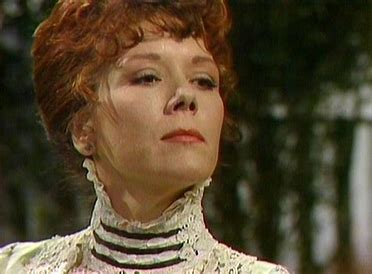Nancy Banks was a pretty girl, and then an attractive young woman - not exactly a beauty (her eyes were her best and only remarkable feature,) but a serviceable, marriageable one. After a rich sexual experience in college and a few tries at graduate school, she decided to marry.
True to form, she did not marry a rock star, but no slouch either. Bobby F was fair-to-middling in looks, appeal, and intelligence; but he had his family's legendary propriety - aristocratic Boston roots, Davenport colony, Salem, and Puritanical rectitude - and was considered a good catch.
Like most young women of her generation Nancy had grown up with an authoritarian father. The Fifties were an era of the three P's - paternalism, patriarchy, and probity - and her family was a model of all. She loved her father, listened patiently to his advice, followed his example, and hoped that she would marry a man like him.
She thought that Bobby F was the man who came closest to Henry Banks, but what she failed to see was that beneath his carefully curated exterior was his indifference - a deep, patently rough disregard for her. She had been bought on sale. Deceived by notions of her adored father she had been conditioned to look no further than good manners, practicality, and good sense. Bobby had been all that at first glance, continued the semblance during the early years of their marriage, and then drifted into his own world of personal taste.
Since she had been bought on sale, and her top price was never much above off-the-rack mark-downs, she was sure to stay; and given that implicit license, he was more absent than in her bed.
This story, however, has nothing to do with Bobby but with Nancy. It was she who had made the fundamental mistake of wrong assumptions. He looked good, smelled good, tasted good; so he must have been good. Yet his was a desultory interest, nothing more. He came home to her, adjusted to her growing impatience and obsession with edges and grouting, then happily left again. Why was she still there? Why did she put up with his deceit? He was frosty at best, cold and slighting at worst.
Worst of all, what had happened to sweetness and light? That happy girl of her twenties who cared little for predictability and ordinariness? She had gadded about happily with the young Bob, and while he found his stride apart from her, she lost her innocence and, desperate to keep house and home together, dug in her heels.
Younger women have kept pace with their husbands - tit for tat in the sexual wars, assignation for assignation, a bit of theatre here, a slice of drama there. No principle involved, just the swinging balance of sexual equilibrium - not exactly Lawrentian in salience or existential meaning, but an easy fungibility. Marriages today are without contract whether civil, social, or religious.
Not so in Nancy's day where marriage, while not necessarily sacrosanct, at least had inherent moral boundaries - expectations of consideration, sharing, and compassion. The image of loving fathers was the standard; and once the screw had turned, the door was firmly shut.
When such marriages are so bound, and partners are left to scratch and scramble within an arbitrarily but distinctly defined world, they cannot help but founder. Who said that individuals coming together for the most fanciful reasons should prosper? Better agree that formal marriage is for the IRS and probate court, and live in separate rooms than to bitch and harp about 'delinquency'.
How could George and Martha, characters in Edward Albee's cautionary tale, Who's Afraid of Virginia Woolf, not have known who they married? How could Martha not have seen George's emotional diffidence and petty preoccupations? How could George not have seen Martha's social pretentions and unholy ties to her father?
Because of the times, their own preconceptions of social propriety, and their selfish hinging to each other, they fought to the death; but only after she had given him a thousand cuts, taken her pound of flesh in ounces, and belittled him to the end. Albee suggests that 'flaying each other to the marrow' was a necessary, good thing; a thing to clear the air, put their marriage on an honest track.
The theatregoer accepts this wisdom with skepticism if not surprise - marriage is simply not that way. There is no clearing of the air when two unlikely individuals - and all marriage partners are so - have at each other.
The Comedies of Shakespeare all end in marriage; but one suspects that once the celebrations are over and the couple returns to the bedchamber, all will not be well. How could it be when Rosalind, Portia, and Beatrice all settle for day-old bread? They run rings around their suitors, best them at all turns, but marry them out of social contract and economic promise.
Not unlike that between Nancy and Bobby F, the Elizabethan marriages were all contrived, although in different complexions. The latter were all proforma, arranged or engineered; the former spontaneous in appearance, deeply psychological at heart. Those fathers! but they both suffered from faulty expectations and the flinty armaments of marital wars.
The women of Ibsen and Strindberg were to the contrary. Hedda Gabler, Rebekka West, Hilde Wangel, and Laura, the Captain's wife were all strong, determined, unstoppable women who destroyed the men around them rather than suffer fools. No whingeing and petty insults, no pound of flesh, just removal.
So Nancy Banks kept house in Glen Ridge, ignored the moves and feints of her husband, absorbed his insults, picked and pecked at him, and finally gave in to time and longevity - another all-suffering wife of a previous generation whose children went in and out of relationships like changing brands of soap, happier because of the porous borders of the marriage.
Albee said that marriage was the crucible of maturity - one had to go through the pain and suffering, the flaying of George and Martha to really grow up - but few younger people want anything to do with such brutality. Better one and done and out the door.
Nancy and Bobby F stayed together until he dropped dead and her children put her in a nursing home where she thankfully was too far around the bend to remember her marriage.







No comments:
Post a Comment
Note: Only a member of this blog may post a comment.